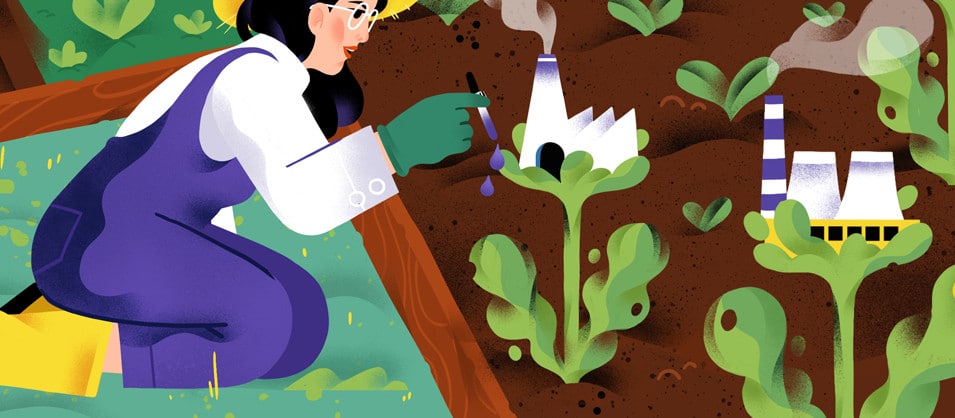Cleantechs are focused on reducing negative environmental impacts by offering recycling, renewable energy, green chemistry solutions and more. From extracting gold from old electronics to seaweed supplements for cattle, here are five cleantech companies hailing from New Zealand.
New Zealand has been ranked fourth in the world for biotechnology innovation potential. By leveraging the country’s strong foundations in the agriculture and energy sectors, companies are positioned to fill a worldwide niche in bioremediation, biorefinery and other green technologies.
There are up to 300 businesses in New Zealand that are working on environmentally friendly solutions to meet the demand for greener and more sustainable technologies, such as alternatives to plastic, processing of industrial waste and new energy sources.
Here are five cleantech companies that are working towards the country’s vision of becoming a healthier and cleaner New Zealand.
Table of contents
Futurity Bio-Ventures
Founded: 2018
Headquarters: Gisborne
Futurity’s mission is to help move the world past oil dependency. To do that, the startup has developed technology that allows it to break down New Zealand pine into its building blocks (lignins, cellulose and hemicellulose), which are then used to replace oil derivatives in paper and packaging, paints, concrete and other products.
Futurity is currently building a $150 million advanced commercial biorefinery — a refinery that converts biomass into fuel, chemicals and other byproducts — which will be the first of several biorefineries to be established in New Zealand. This cleantech company is planning to formally enter capital raising to scale up its technology.
Mint Innovation
Founded: 2016
Headquarters: Auckland
This e-waste recycling company has developed a solution to recover precious metals (e.g., gold, copper and lithium) from old electronics, such as computers, mobile phones and televisions. The environmentally friendly technology relies on chemicals and microorganisms to recover more than 95 percent of metals. Compared with conventional mining and smelting, Mint saves 91 percent of the carbon produced recovering metals.
Mint aims to have a biorefinery in every major city in the world to provide a low cost, sustainable solution to recovering metals from urban mines, which represent stockpiles of valuable metals locked in discarded electronic waste. In fact, over $80 billion worth of valuable metals are discarded in such mines every year.
Just this month, Mint opened its first large-scale biorefinery — and the world’s first e-waste biorefinery — in Sydney, Australia, with the capacity to recycle 3,000 tons of e-waste.
CH4 Global
Founded: 2019
Headquarters: Wellington
The aquaculture startup CH4 Global is on a mission to achieve zero methane agriculture using the seaweed Asparagopsis. Through cultivating and processing the seaweed, this cleantech company produces feed supplements that reduce the methane output of cows and other ruminants. Compounds in the seaweed disrupt the gut microbes producing methane gas, and research has shown that up to 90 percent of methane emissions are reduced.
CH4 Global’s first commercial product for beef feedlot is set to launch in 2022, and they are working on formulations for other ruminants such as goats, sheep and deer. The company aims to provide solutions for the climate crisis now, by targeting the world’s domestic cattle population of 1.5 billion, which is responsible for one-sixth of our greenhouse gas volume.
Ligar
Founded: 2013
Headquarters: Hamilton
Ligar develops molecularly imprinted polymers (MIPs) that can be used for the removal of contaminants such as pollutants, heavy metals, pesticides and flavor taints and the extraction of high value molecules that are used for medicines, nutriceuticals, flavoring and aromas.
MIPs can be formed into any shape that is complementary to the target molecule, allowing them to bind only the specific target in a solution. These polymers essentially function using a “lock and key” mechanism to bind and extract the problematic or desired molecules, while leaving everything else behind.
Ligar is currently working on gaining food contact approval from the European Food Safety Authority and the U.S. Food and Drug Administration for its polymers, developing and testing new polymers, and simplifying the technology.
Biotelliga
Founded: 2009
Headquarters: Auckland
Biotelliga is an agri-biotech focused on developing natural crop protection solutions to minimize the environmental and toxicological impacts of synthetic pesticides and maximize crop performance and yield. The products are rooted in fungal biology, and involve the application of fungi-derived biomolecules to the soil or plant foliage for pest and disease control. This cleantech company also offers seed integrated solutions where seeds are either coated with active biomolecules or inoculated with bioprotective organisms to protect crops from environmental stress.





